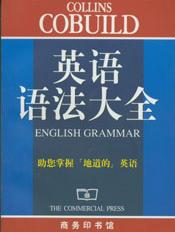牛津实用英语语法-第65部分
按键盘上方向键 ← 或 → 可快速上下翻页,按键盘上的 Enter 键可回到本书目录页,按键盘上方向键 ↑ 可回到本页顶部!
————未阅读完?加入书签已便下次继续阅读!
(God) bless you!
愿上帝保佑你!
God save the queen!
愿上帝保佑女王!
Heaven help us!
老天保佑我们!
Curse this fog!
这该死的雾!
e what may,we’ll stand by you!
不管发生什么事,我们都将站在你一边!
请注意 if need be这一短语的用法,它的含义相当于 if it isnecessary(如果有必要的话):
If need be we can always bring another car.
如果有必要的话我们还可以再开一辆车来。
B 虚拟现在时有时用在诗歌中,或者表示某种愿望,或者用在条件从句或让步从句中:
Stevenson:Fair the day shine as it shone in my childhood.
史蒂文森:但愿阳光就像我童年时代那么灿烂。
Shakespeare:If this be error,and upon me proved…
莎士比亚:倘若这是个错误,在我身上得到证明……
Byron:Though the heart be still as loving…
拜伦:虽说此心热恋如初……
C 如在第235节中所述,某些动词后面常使用should+ 动词原形。如是be,则should有时可被省略:
He suggested that a petition(should) be drawn up.
他建议起草一份请愿书。
这样剩下一个不带to的不定式,就构成虚拟语气。
?
'Amber demo'
292 as if/as though+ 虚拟过去时
?
虚拟过去时也可用在 as if/as though之后,以表示当前不真实、不大可能或有疑问的事情(as if和as though之间没有什么区别):
He behaves as if he owned the place.
他的所作所为好像他是这个地方的主人。(其实他并不是这儿的主人,或很可能他不是主人,或我们并不知道他是不是主人。)
He talks as though he knew where she was.
他说话的神气就好像他知道她的下落似的。(其实他并不知道,或很可能不知道,或我们并不知道他是否知道。)
He orders me about as if I were his wife.
他对我指东指西的,就好像我是他的妻子似的。(其实我不是。)
as if/as though前面的动词也可用一般过去时而不用改变后面虚拟语气的时态:
He talks/talked as though he knew where she was.
如果指的是过去不真实的或设想的动作,则应在as if/asthough后面用过去完成时:
He talks about Rome as though he had been there himself.
他谈论起罗马来就好像他去过那里似的。(其实他没去过,或很可能没去过,或我们并不知道他去过没有。)
这里 as if/as though前面的动词也可变成一般过去时,而不用改变后面虚拟语气的时态:
He looks/looked as though he hadn’ t had a decent meal for a month.
他看起来好像已有一个月没有吃过一顿像样的饭了。
?
'Amber demo'
293 it is time+ 虚拟过去时
?
it is time后面跟不定式:
It’s time to start.
是动身的时候了。
或者与for+ 宾语+ 不定式连用:
It is time for us to go.
我们该走了。
或者与主语+ 虚拟过去时或过去进行时连用:
It is time we went.
我们该动身了。
It is time we were leaving.
(译文同上。)
这些形式之间在含义上稍有区别。
it is time+ 不定式仅表示做某一件事的适当的时间到了。
it is time+ 主语+ 虚拟过去时意味着已经稍迟于预定时间。可以在句中加上high以强调这一含义:
It’s high time we left.
我们早该动身了。
it is time+ I/he/she/it后面不能接were,而要接was:
It’s time I was going.
我该走了。
(关于条件句中的虚拟过去时/不真实的过去,参见第222节;关于位于would rather/sooner之后的虚拟过去时,参见第297节;关于位于wish+ 主语之后的虚拟过去时,参见第300节;关于间接引语中的不真实的过去,参见第310节。)
?
'Amber demo'
第二十九章
care, like, love,
hate,prefer,wish?
?
'Amber demo'
294 care和like
?
care主要用于否定式与疑问式中。
A care for+ 名词/动名词与 like+ 名词/ 动名词的含义非常接近。
可以说:
(a) Does/Did Tom care for living in the country?/Does/Did Tom likeliving in the country?
汤姆愿意住在乡下吗?
(b)You don’t care for science fiction,do you?/You don’t like sciencefiction,do you?
你不喜欢科学幻想小说,是吗?
对上面(b)的回答可以是:
I don’t care for it./I don’t like it much./Oh yes, I like it.
我不喜欢它。/我不太喜欢它。/噢!不,我喜欢它。(最后一个回答中不能用care。)
care在疑问式中有时暗示一丝怀疑或犹豫:
Does Ann care for horror movies?
安喜欢看恐怖影片吗?(说话人认为她大概不喜欢,或说话人因为她竟好像喜欢看恐怖电影而感到惊讶。)
如用 would you care(for)…?时,怀疑或犹豫的色彩表现得更明显。
B would care和 would like
would care for+ 名词或would care+ 不定式与would like+ 名词/不定式相似。但是 would care(for)通常不用于肯定的陈述句。用would you care(for)…?表示的建议不如用would you like…?表示的建议那样自信。
(a)Tom:Would you care for a lift,Ann?
汤姆:安,你愿意搭我的车吗?(可能汤姆的车子不太舒服,而她又喜欢舒服。)
(b)Tom:Would you care to see my photos,Ann?
汤姆:安,你想看看我的照片吗?(他不敢肯定她是否愿意看。)
对(b)最好的回答方式是:
I’d like to see them very much.
我很愿意看。
同在肯定句中一样,这里用would like代替 would care。
在否定句中,用法也是相同的:
—I wouldn’t care to live on the 35th floor.
—Oh,I’d rather like it.
—我不在乎住在35层楼上。
—噢,我挺愿意的。
would care for/would like有时可与动名词连用。(参见第 295节B。)
C would have cared(for)和 would have liked
二者在此都指并未发生的动作:
Ann:I’d have liked to go with Tom.
安:我本倒愿意和汤姆一起走。(我想和汤姆一起走,可没能如愿以偿。参见第296节D,这里不能用care。)
Bill:But he walked all the way! You wouldn’t have cared for/have likedthat,would you?/Would you have cared for/have liked that?
比尔:但他是一直走了去的!你总不愿意那样做吧?
D 请不要将care的上述用法与care for和care(about)混淆:
1 care for(=look after照顾)主要用于被动语态:
The old people were cared for by their families.
老年人受家庭照顾。
2 care(about)(=feel concerned关注,在乎)主要用于否定式与疑问式。
I don’t care(about)与 I don’t mind意思相似。因此常可用Idon’t mind代替 I don’t care:
—It will be very expensive.
—I don’t care/mind./I don’t care about/mind the expense./I don’ tcare/mind what it costs.
—这会很贵的。
—我不在乎。/我不乎花多少钱。/我不在乎要花多少钱。
但请注意 I don’t care(about)意指I am indifferent(to)(我满不在乎,漠不关心)而I don’t mind意指 I don’t object(to)(我不反对),如 He/It dosen’t worry/upset/annoy me(他/这不使我发愁/心绪烦乱/烦恼)。
I don’t mind 远远比 I don’t care更有礼貌,而且 I don’t care
常常令人听起来感到妄自尊大和自私。在否定疑问式中两者都可以使用:
Don’t you care/mind what happens to him?
你难道不关心他出什么事吗?
Didn’t you care/mind what happened?
当时出什么事你竟然不关心吗?
但在一般疑问句中这两者有较大的区别:
Do you care?相当于:
Are you concerned?/Do you feel concern?
你关心吗?/你在乎吗?
而Do you mind?常常是Do you object?(你反对吗?)的意思。
(另参见第263节。)
?
'Amber demo'
295 care,like,love,hate,prefer
?
A 用于条件句中时,这些动词之后常常接带to的不定式:
Would you care/like to e with me?
你愿意和我一起去吗?
I’d like to(e)very much./I’d love to(e).
我非常高兴去。
I’d hate to spend Christmas alone.
要我一个人过圣诞节,我会很不高兴的。
这里我们想的是将来的特定的动作。
B 但是,如果没有想到一个特定的动作而是谈及主语的一般喜好,则在 would care for,would like后面接动名词。注意这里的 would care for/would like可由 would enjoy代替:
She would like/would enjoy riding if she could ride better.
她要是骑马能骑得好一点,她会喜欢骑马的。
I wonder if Tom would care for/would enjoy hang…gliding.
我不知道汤姆是否会喜欢三角翼滑翔。
hate和prefer同样可以这样使用,但是比较少见。
C 如果 care for,like (=enjoy),love,hate和prefer用于现在时和过去时,后面一般接动名词:
He doesn’t/didn’t care for dancing.
他不喜欢跳舞。
They love/loved wind…surfing.
他喜欢冲浪运动。
He prefers/preferred walking to cycling.
他喜欢散步,不喜欢骑自行车。
但这里也可以用不定式,而且在美国英语中特别普遍:
They love/loved to run on the sands.
他们喜欢在沙滩上跑步。
D 请注意like也有认为是明智的或正确的的意思。这时like后常常可接不定式:
She likes them to play in the garden.
她愿意让他们在院子里玩。(她认为他们在那里玩是安全的。)
I like to go to the dentist twice a year.
我总爱每年去看两次牙医。(我认为这样是明智的。)
上面一句与 I like going to the dentist比较,后者含有我喜欢去看牙医的意思。同样:I don’t like to go(我不想去)常常意指 I don’t think it right to go(我认为去是不正确的)及Idon’t like going(我不喜欢去)。
注意这两个否定式之间还有一个区别。I don’t like to go常常意指 I don’t go because I don’t think it right(我不去是因为我认为不该去)。I don’t like going常常意指 I go,although I
don’t enjoy it(尽管我不愿意去,我还是去)。同样:I didn’t
like to open the letter(我不想拆信)意为I didn’t open it be…cause I didn’t think it right to do so(我没拆开信,因为我认为不该这么做)。但I didn’t like opening the letter意为






